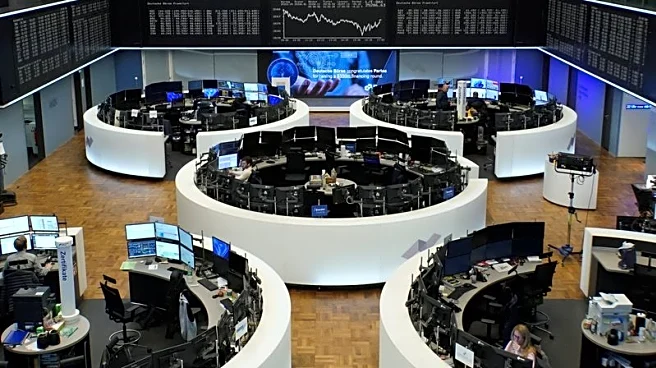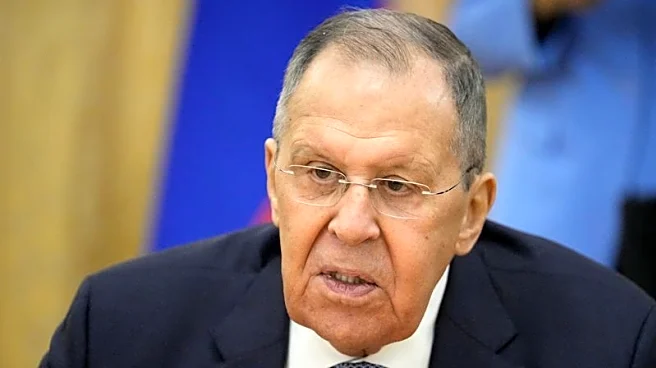Rapid Read • 8 min read
European leaders have expressed strong support for Ukraine, emphasizing that any peace negotiations with Russia must involve Kyiv. This comes ahead of a scheduled meeting between U.S. President Donald Trump and Russian President Vladimir Putin in Alaska. European leaders, including those from the UK, France, Italy, Germany, Poland, Finland, and the European Commission, issued a joint statement underscoring the necessity of Ukraine's participation in the talks. President Trump has indicated a willingness to hold a trilateral meeting with Ukrainian President Volodymyr Zelensky, but the current plan remains a bilateral summit with Putin. Zelensky has warned that any agreements made without Ukraine's involvement would be ineffective. The European leaders have reiterated that international borders should not be altered by force and have pledged continued support for Ukraine.
AD
The insistence of European allies on Ukraine's inclusion in peace talks highlights the geopolitical stakes involved. The outcome of these discussions could significantly impact the security landscape of Europe and the sovereignty of Ukraine. European nations are concerned about being sidelined in negotiations that could reshape regional security dynamics. The potential exclusion of Ukraine from these talks raises fears of legitimizing Russian territorial gains, which could set a dangerous precedent for international relations. The situation underscores the delicate balance of power and the importance of diplomatic engagement in resolving conflicts.
The upcoming summit in Alaska will be closely watched by international stakeholders. If President Trump and President Putin proceed with a bilateral meeting, it could lead to increased tensions with European allies and Ukraine. The possibility of a trilateral meeting remains uncertain, as it depends on Putin's willingness to engage with Zelensky. European leaders are likely to continue advocating for Ukraine's involvement and may increase diplomatic pressure on the U.S. to ensure a comprehensive peace process. The outcome of these talks could influence future U.S.-Europe relations and the broader international approach to the conflict in Ukraine.
The potential exclusion of Ukraine from peace talks raises ethical concerns about the principles of sovereignty and self-determination. It also highlights the challenges of balancing national interests with international cooperation. The situation could lead to long-term shifts in alliances and influence the global perception of U.S. foreign policy. The role of European nations in mediating the conflict and their ability to assert influence in global affairs may also be tested.
AD
More Stories You Might Enjoy











